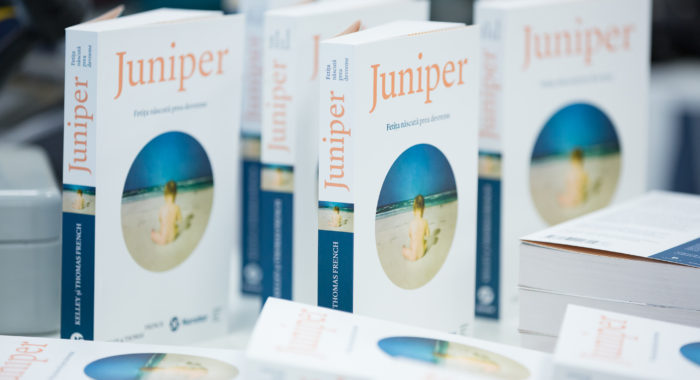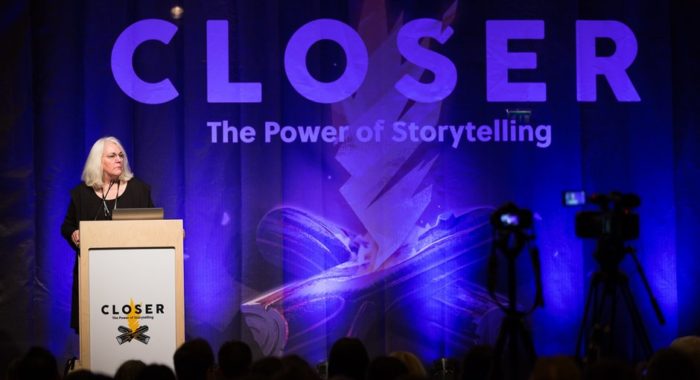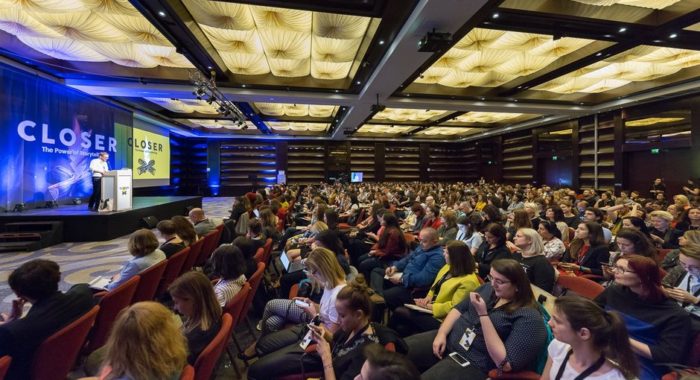How did podcasts come to be? What makes them special and different from other kinds of media and why do people like them? What makes a podcast work and what are the mistakes that producers sometimes make? Here are some of the takeaways Pat Walters left us with:
What is so special about podcasts?
They are on demand. You’re in the car, you turn to NPR and listen to whatever is there. If you want to listen to a particular show, you can now listen to what you want to, whenever you want to, wherever you want to, anywhere in the world.
They don’t disappear. Radiolab started as a radio show, which seemed kind of crazy. It felt worth it to put all this effort into making an audio product that people could share with friends and families; it started becoming more like a book that you could hold on to and share with people that you love.

Why people listen to podcasts:
- Stories
People love stories for the way they entertain us, help us explain ourselves, and make sense of the chaos around us. They are built to be conversational. It’s like you hear the story from a friend. People go through something, experience change. You hear them on highly produced radio shows, like Invisibilia. Story podcasts are also personal storytelling podcasts (Storycorps, The Moth, Radio Diaries), interview shows (Marc Maron, Fresh Air, Death, Sex & Money), or fiction podcasts, which are a growing category (36 questions, Lore, Homecoming).
- Learning
Podcasts can teach you primary useful things to know about the world. They’re like a proxy to your friend who is telling you about that really interesting thing you didn’t know or history lessons you didn’t know about. Look at 99% invisible, Reveal, The Allusionist, Stuff You Missed in History Class, The Daily, Hardcore History. The thing that’s cool about podcasts is that if you can find your tribe, you can find the audience to support the kind of work that you do.
- Companionship
I come from a journalistic background. When I got into audio I was reporting magazine stories, so my instinct was to stay out of the sources’ way. If I had to be a part of the story, that was fine, but it didn’t have to be about me. The hosts behind the podcast are putting themselves out there, by sharing their opinions, personalities, what they think of whatever they’re talking about. If you have the right story to tell, you have a perspective that people want to hear.
Another Round, it challenges me in ways that other things don’t. Pod save America is made by a few of Obama’s former staff, very much driven by them. Car Talk is two guys taking calls from people about problems with their cars, and it proves the show can be successful only based on the personality of the hosts). There’s Call Your Girlfriend , StarTalk (with Neil deGrasse Tyson), Reply All (in the tradition of This American Life and Radiolab, doing journalism, going after big corporations, it’s very much driven by their personalities).
Most really good podcasts do at least two out of the following three things: it gives you something to learn about, it makes it fun and it makes you feel a personal connection.

What makes the shows that succeed good?
The first thing is characters. What makes a good podcast character?
- They are very good talkers – whenever you’re looking for characters in your story, always look for a good talker. You want people that make you feel excited about the things they talk about. You kind of have to fight with it if you want to make the story be something that people connect to.
- They have really strong opinions and they’re not afraid to tell you about those feelings. Sometimes it takes time to make people open up, but eventually you get there.
- They’re close to the action. Find somebody sharing feelings and details about what they want.
Questions
Even people that make podcasts forget this: you have a microphone and you point it out at people. The engine of the story is: What happens next?
Ask open-ended questions:
- What happens next? What did you think or feel about the thing that just happened?
- Don’t forget about the 5Ws: Who, what, where, when, why? And how? They’re very easy to forget. The thing about audio, you’re going to hear what you missed. If you’re doing audio, you’ll hear what you didn’t ask and it’s very painful.
- Push people to be specific. If someone tells you something vague, ask them further question. People don’t tend to just give you their detailed experience. Earlier I found this to be very difficult because I didn’t want to make people feel uncomfortable. I soon realized that people like to be pushed to talk about themselves. A good interviewer makes you find out things about you that you didn’t know.
- Push people for complexity. Try inversion. If someone has a positive feeling about a thing, try to complicate the feeling. You start to see the contour about the positive feeling. If someone is scared about the water, ask: do you know someone who hates being next to the water?
- Ask them about emotions, make a list of emotions: happy, sad, threatened, uncertain, etc. As you go through the interview, ask them: When was there a moment when you were sad/happy?
 Passion
Passion
Maybe the most important thing: whether it’s one episode or a full podcast, make sure you really care about it. You personally need to care and feel it in your gut. Sometimes you get an assignment and find a way to care about it. If you can’t, if you’ll be bored about the subject, then the audience will be bored.
Making a podcast is hard, is really hard. It’s hard for me, Ira Glass, Sarah Koenig, everybody. It never becomes easy. The hard part is finding the right questions and right words, trying to get all the ideas that you want. Those are the things that will stay hard forever. It will drive you to consume too much coffee, it will be worth it, if you care about it deeply, it will be deep and meaningful and worth everything that you want to do.
Getting started with podcasting, with Pat Walters, was part of the #Story17 festival organized during 16 – 22 October. Pat also held a keynote on the power of audio journalism at The Power of Storytelling conference – here are some of the takeaways from day 1 and day 2 of the event.



